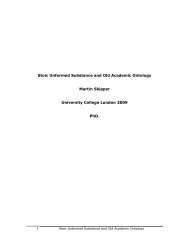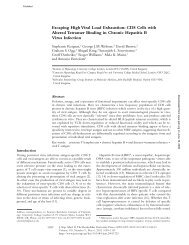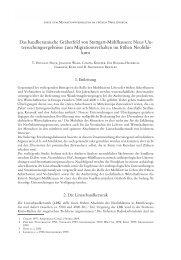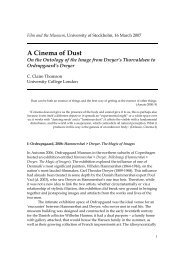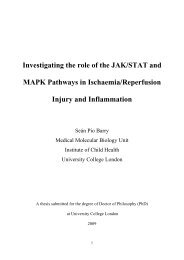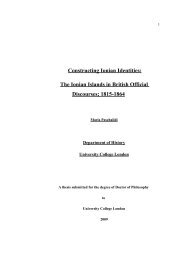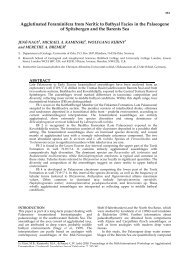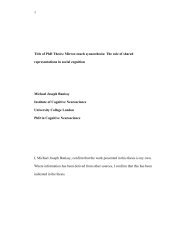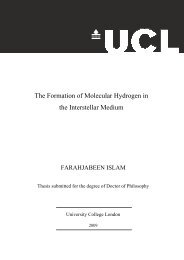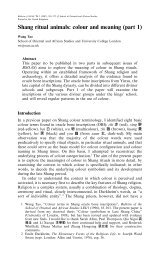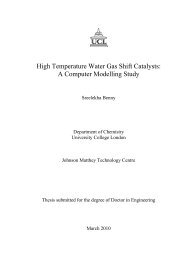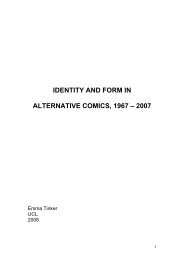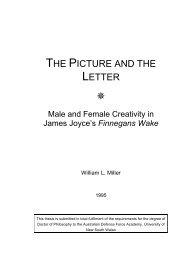Vyacheslav Ivanov and C.M. Bowra: a ... - UCL Discovery
Vyacheslav Ivanov and C.M. Bowra: a ... - UCL Discovery
Vyacheslav Ivanov and C.M. Bowra: a ... - UCL Discovery
Create successful ePaper yourself
Turn your PDF publications into a flip-book with our unique Google optimized e-Paper software.
succeeds in conveying the power <strong>and</strong> mystery of the orginal, while preserving its<br />
iambic metre <strong>and</strong> alternate rhyming scheme.<br />
One final point should be noted. In his anthology <strong>Bowra</strong> chose to highlight the<br />
importance of this poem by placing it last; he reversed the order in which the last two<br />
poems appear in Cor Ardens, thereby creating the effect of a triptych, moving from<br />
amoral aestheticism (‘Beauty’s Nomads’) through existential doubt <strong>and</strong> spiritual<br />
searching (‘Complaint’) to a final Christian resolution (‘The Road to Emmaus’). It is<br />
significant that <strong>Bowra</strong> gave particular prominence to the final stage of this progression<br />
through his arrangement of the poems, culminating in a strong expression of Christian<br />
belief, particularly since the role of faith <strong>and</strong> the relationship of art to religion were<br />
precisely the areas in which his views differed most substantially from <strong>Ivanov</strong>’s. His<br />
translations of <strong>Ivanov</strong> opened up a dialogue between two different minds, formed by<br />
the legacy of a common cultural tradition rooted in classical antiquity. As we shall see<br />
in the next chapters, this dialogue then developed into a full-scale correspondence, in<br />
which the relationship of this tradition to Christian values became a key issue for<br />
debate.<br />
A Russian Symbolist’s Perception of Dante (Cambridge: Cambridge University Press, 1989), 198.<br />
57



